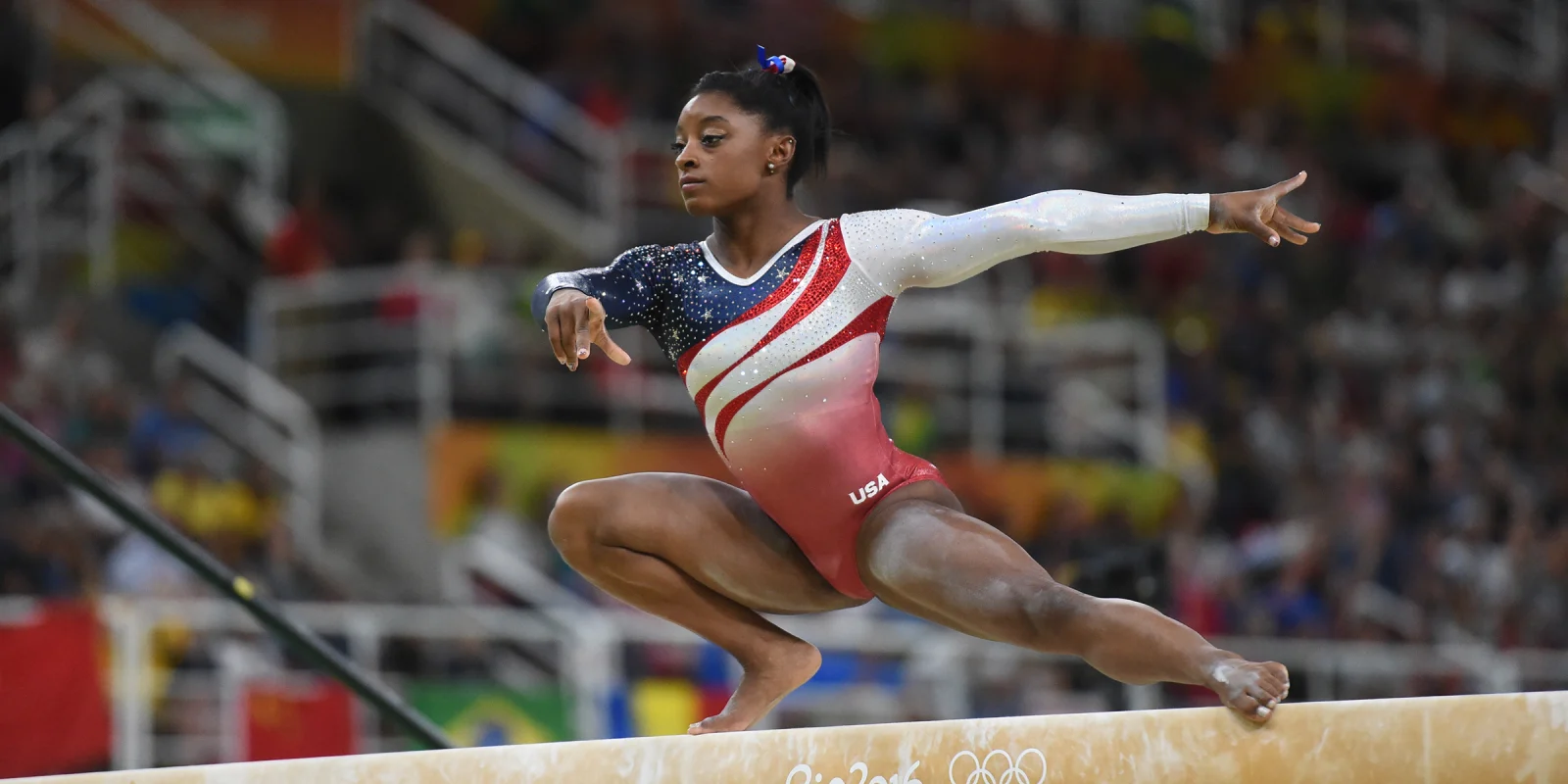American gymnast Simone Biles was the center of media attention after she withdrew from numerous events at the Tokyo Olympics, citing mental health concerns. One of the most celebrated gymnasts of all time, Biles is the recipient of a combined total of 32 Olympic and World Championship medals. In addition, she is the first American gymnast to win a World medal for every event, and was a member of the gold medal-winning U.S. team at the 2014, 2015, 2018, and 2019 World Artistic Gymnastics Championships. These myriad accomplishments can be summed up in a single sentence: Simone Biles is the GOAT — Greatest athlete Of All Time for gymnastics.
And yet, with great success comes great pressure — on both the mind and the body. When she withdrew from various Olympic events, Biles cited a phenomenon called “the twisties” (or “yips,” as other sports sometimes call it), which is when a gymnast suddenly and unpredictably loses spatial orientation while in the air. The twisties can shake anyone’s confidence and are incredibly dangerous, especially at the Olympic level. They resolve similarly to how they present: idiopathically.
When I read about Biles’ experience, I could not help but draw connections to how the COVID-19 pandemic has affected health care workers over the past year. We have also put everything on the line and worked countless hours, only to find ourselves dealing with pushback, low vaccination rates, and needless deaths. I do not think anyone could have predicted how this year has progressed. Biles most certainly did not foresee getting the twisties, even if they have happened to her before.
As a former gymnast, I know that gymnastics is the epitome of relentless improvement, at all levels. And as a current medical student, I have learned that medicine isn’t that different. As we have seen throughout the COVID-19 pandemic, this relentlessness can get tiring: Studies show that medical burnout is rampant among trainees and attendings alike.
And so, I look to Simone Biles as an example of how to deal with it all.
When I reflect on Biles’ decision to step back for the sake of her mental health, I see something deeper than just saying “No.” To me, her story is also about dealing with people who will never understand or truly relate to your effort or stress, no matter your level of expertise. For her decision to withdraw, Biles has received a significant amount of criticism. Notably, the most vile comments are from non-gymnasts and people who only watch gymnastics once every four years during the Olympics. In medicine, clinicians often deal with a similar phenomenon: Namely, patients who get their medical information from social media. There is no easy way to bridge the gap between those in the know and those outside of it.
And yet, Simone Biles has found a way to open up the conversation. Her emphasis on protecting her self, health, and future all comes down to mitigating harm — exactly the same thing clinicians within COVID-19 settings are attempting to do for their patients.
The other lesson for clinicians to glean from Biles’ experience is one of leadership. Thanks to the world-class way Biles was able to communicate with and support her teammates, she knew she could count on them when she needed to step back. Clearly, the team was equally as prepared as she was: They went on to win the silver medal.
This story shows me that all team members, from health care professionals to gymnasts, can be excellent alone, but that the real show of excellence is to cover and support colleagues in the face of adversity.
I hope I grow into that model of strong leadership as I progress through my medical career. Knowing limits and how to create the support before you need it takes a certain level of skill appropriate to the GOAT. It’s something I will never forget.
What pop cultural figures or stories inspire your own practice of medicine? Shout them out in the comments below.
Gerri Lenth is a 4th year medical student at Idaho College of Osteopathic Medicine and is applying to the 2021 General Surgery match cycle. She coached gymnastics for ten years before returning to medical school as a non-traditional student. She can be reached at @Gerri-Lenth on Twitter.
Image by A.RICARDO / Shutterstock







